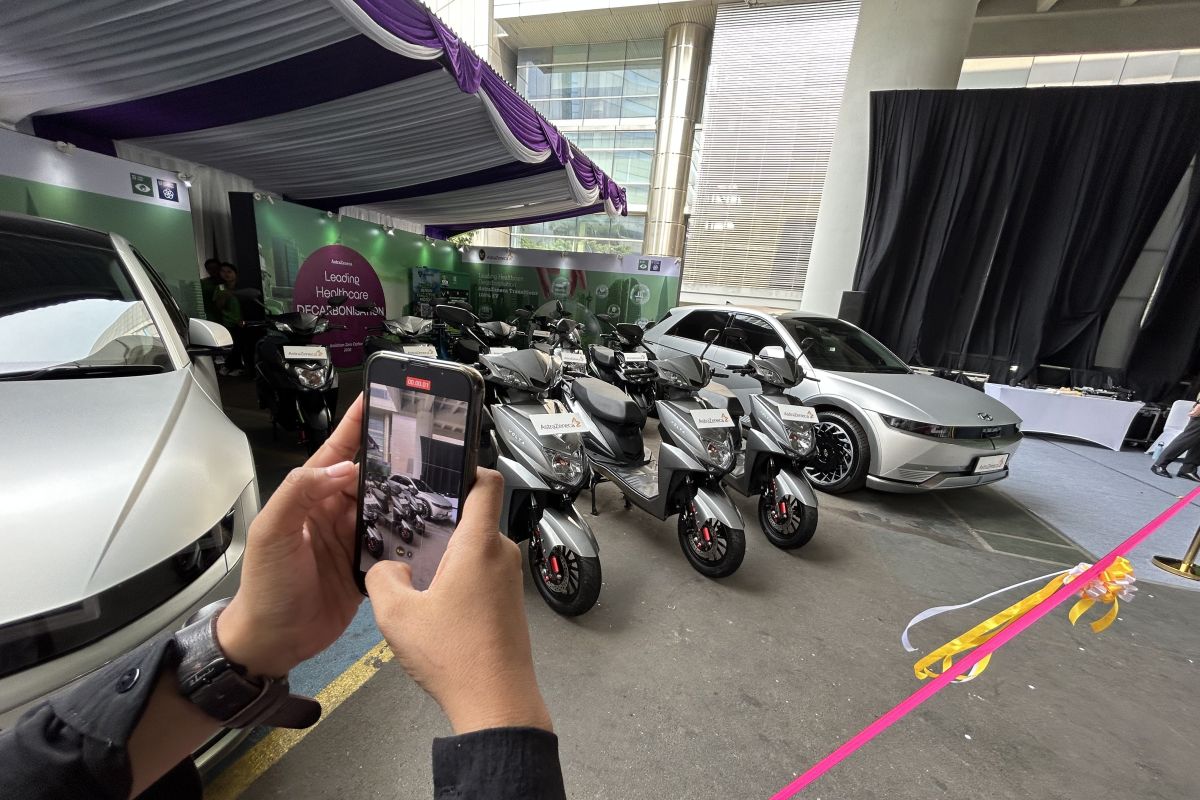"This effort is in line with the government's vision of lowering carbon emissions for the sake of creating a greener and sustainable future," the ministry's Deputy for Environmental and Forestry Management Coordination, Nani Hendiarti, remarked in Jakarta on Tuesday.
During the launch of the 500 EVs for AstraZeneca's operational vehicles, she expressed hope that the effort made by the two parties would encourage other actors in the health sector to care for the environment and nature.
Hendiarti noted that the effort to lower carbon emissions generated by the transportation sector constitutes one of the main agendas of the Indonesian government to achieve the net-zero emissions target by 2060.
In order to achieve the target of carbon emissions reduction based on the Nationally Determined Contribution (NDC), Indonesia needs to convert as many as 1.8 million conventional motorbikes to EVs by 2025 and 13 million by 2030, Hendiarti noted.
As for fossil-based fuel four-wheeled vehicles, the country must ensure the conversion of 400 thousand vehicles by 2025 and two million by 2030, she stated.
Hendiarti remarked that cooperation between the government and AstraZeneca does not merely involve the conversion of conventional vehicles into eco-friendly ones since both parties have already commenced a program that aims to plant 20 million trees along Citarum River.
Meanwhile, President Director of AstraZeneca Indonesia, Se Whan Chon, affirmed that collaboration is required for realizing zero carbon health services.
He emphasized the importance of maintaining the global collaboration shown during the battle against the COVID-19 pandemic to recover the earth and protect the health of its inhabitants and their future generations.
"The transition of AstraZeneca's operational vehicles into EVs serves as our latest sustainability initiative that reflects our commitment to sustainable health care. This transition will reduce carbon emissions generated by our vehicles by 900 metric tons," he explained.
Chon then stated his company's support for the Indonesian government in the efforts to expedite the target of EV conversion by partnering with local EV producers.
Related news: Electric motorbike production at 1.4 mln units: minister
Related news: Ministry: high BEV carbon emissions due to battery manufacturing
Related news: Ministry pursuing EV ecosystem development target
Translator: Kuntum Khaira, Tegar Nurfitra Putra
Editor: Sri Haryati
Copyright © ANTARA 2023












